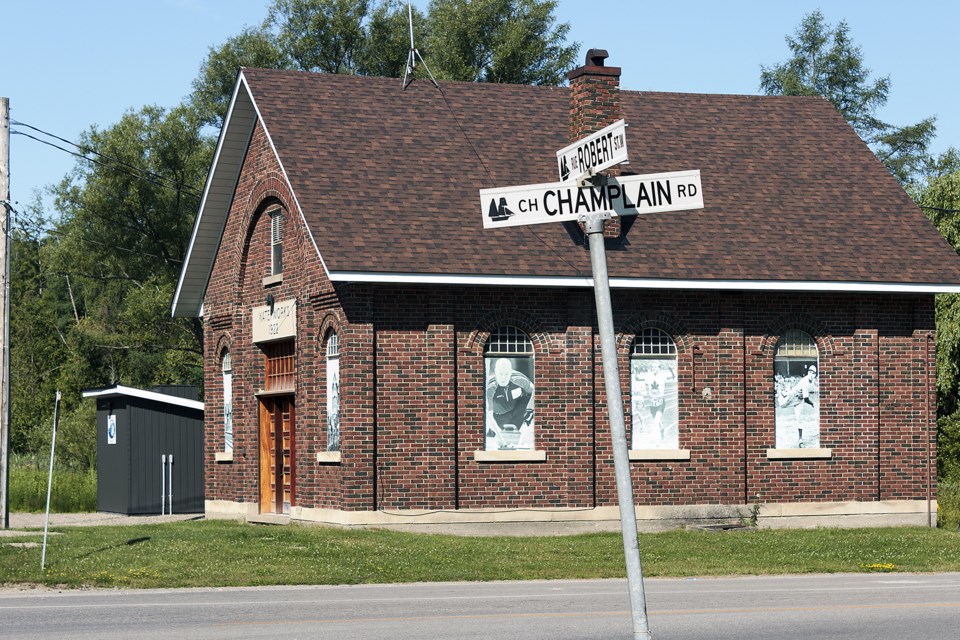Penetanguishene council expressed joy that their drinking water is getting cleaner.
A report given at a recent committee of the whole meeting provided field pumping test results from the Robert Street West 2 and 3 Wells, showing a great decline in a decades-old concern.
“This is just the most amazing news in years," Coun. Debbie Levy said.
Located on either side of Champlain Road at the Robert St. W. intersection, Well 2 on the east side was constructed in 1950 with renovations in 1958, and Well 3 to the west was built in 1961; they were previously the sole source of drinking water for Penetanguishene.
In 1991, they were shut down when various volatile organic compounds (VOC) were detected, including the probable human carcinogen trichloroethylene (TCE). Well 2 levels were 314 μg/L (micrograms per litre) in 1991 and 42.7 μg/L for Well 3 for TCE; other VOC measured high as well.
Water sampling tests were done over increasing timeframes in 1991, 1997, 2006, 2012; these consisted of measuring VOC levels within controlled discharge as samples were sent for laboratory analysis. Most recently, a 90-day long-term pumping test was done in 2021 between September to December by consultant Golder Associates Ltd.
Results showed a curved decline in TCE levels throughout the decades, with the 2021 levels for Well 2 at 18 μg/L in September and 10 μg/L in December; Well 2 was measured as the more vulnerable of the two wells. Ontario Drinking Water Standards stipulate that 5 μg/L is the threshold between safe and unsafe drinking water, and while all other VOC in the measurements were either minimized or untraceable in the samples, TCE still measured outside the safety zone.
Public works director Bryan Murray summarized to council the impact of the findings.
“Through this test which was a much higher flow rate than the last test, it indicated an almost 50 per cent reduction since 2012 which is a substantial reduction,” said Murray, “which indicates that the amount of TCE in the groundwater supply is decreasing over time.
“It’s been indicated in the report that within the next 10 years, it could potentially be below the provincial water quality objective for TCE, which would be a fantastic development if that were to happen.”
An ongoing Municipal Class Environmental Assessment for the Payette Drive water supply system required the Robert St. wells to be tested, to assist in determining if they could be connected as a secondary water source for the town, or even as a possible connection to the neighbouring well supply in Midland.
Although the source of VOC at the Robert St. wells remains unknown, Golder Associates suspected the closed MPT Landfill site and industrial operations at Golf Link Road to be a possible cause. Both wells draw water from the lower of two aquifers which extend south; in contrast, the Payette capture zone extends under the north part of Penetanguishene towards the Midland wells.
Additionally during the testing of Well 3, stagnant water containing certain hydrocarbon-related VOC suggested the well seal could be compromised. Murray addressed the concern to council.
“If Robert St. W. is shortlisted as a preferred alternative (of the Payette secondary water supply), the repair and review of that well seal will be completed as part of that process. We haven’t lost sight of that, but that would be completed as part of the design and construction phase,” said Murray.
Ultraviolet treatment of the low TCE concentration, through a process called advanced oxidation, was recommended by both staff and the consultant; high-level estimates ranged between $6.8 to $8.6 million for the Robert St. well field.
Accepting the report as information, the committee of the whole also directed the water division of town to continue monitoring the TCE concentration of the well field through annual short-term pump testing of 72-hour durations.
The Robert St. W. well field pumping tests results report, with the thorough Fall 2021 TCE and yield testing program report by Golder Associates, can be located on the agenda page of the Town of Penetanguishene website.
Information on comparable water quality summaries for previous years at the Payette supply can be found through the water page of the Town of Penetanguishene website.
Meetings of Penetanguishene council are held on the second Wednesday of each month, and can be watched live on Rogers TV cable 53, or on the Rogers TV website.
Archives of council meetings are located on the Town of Penetanguishene YouTube channel.
